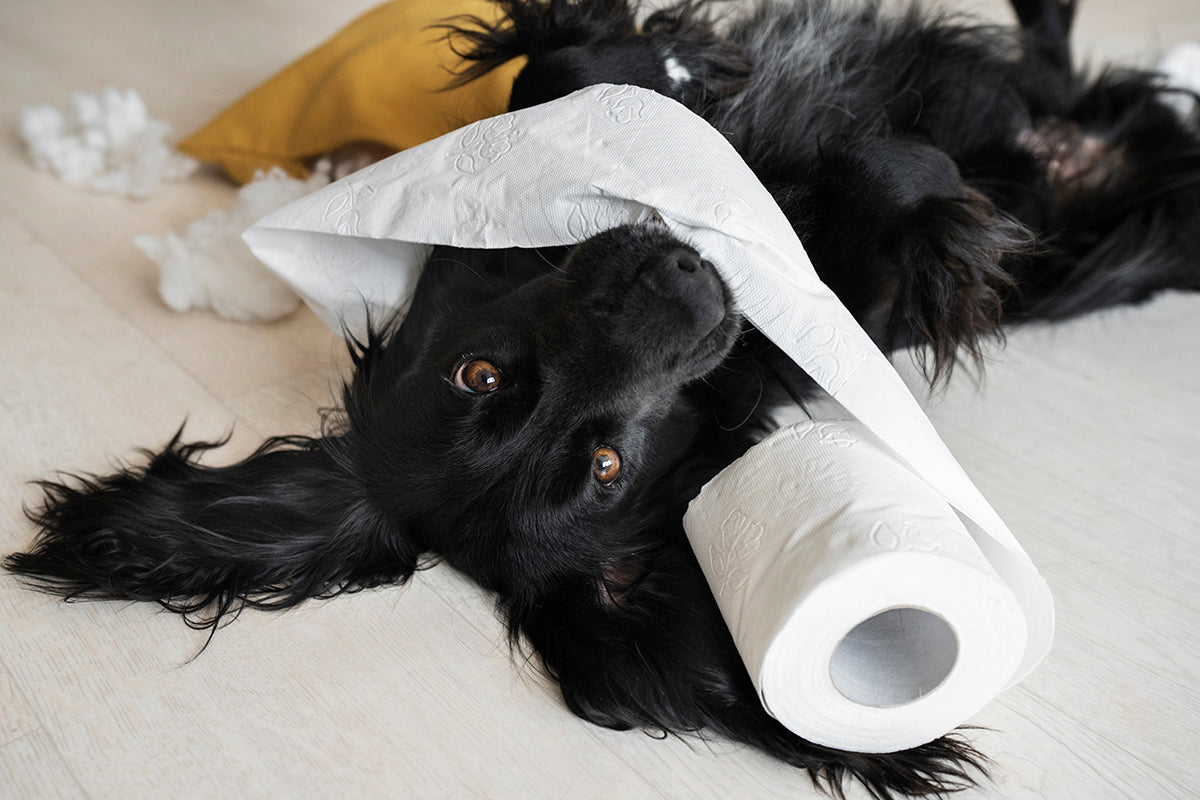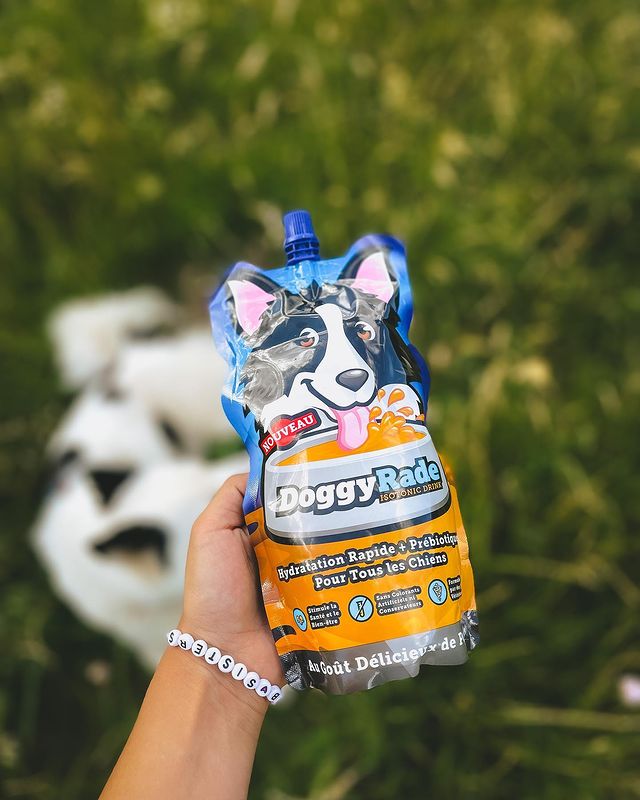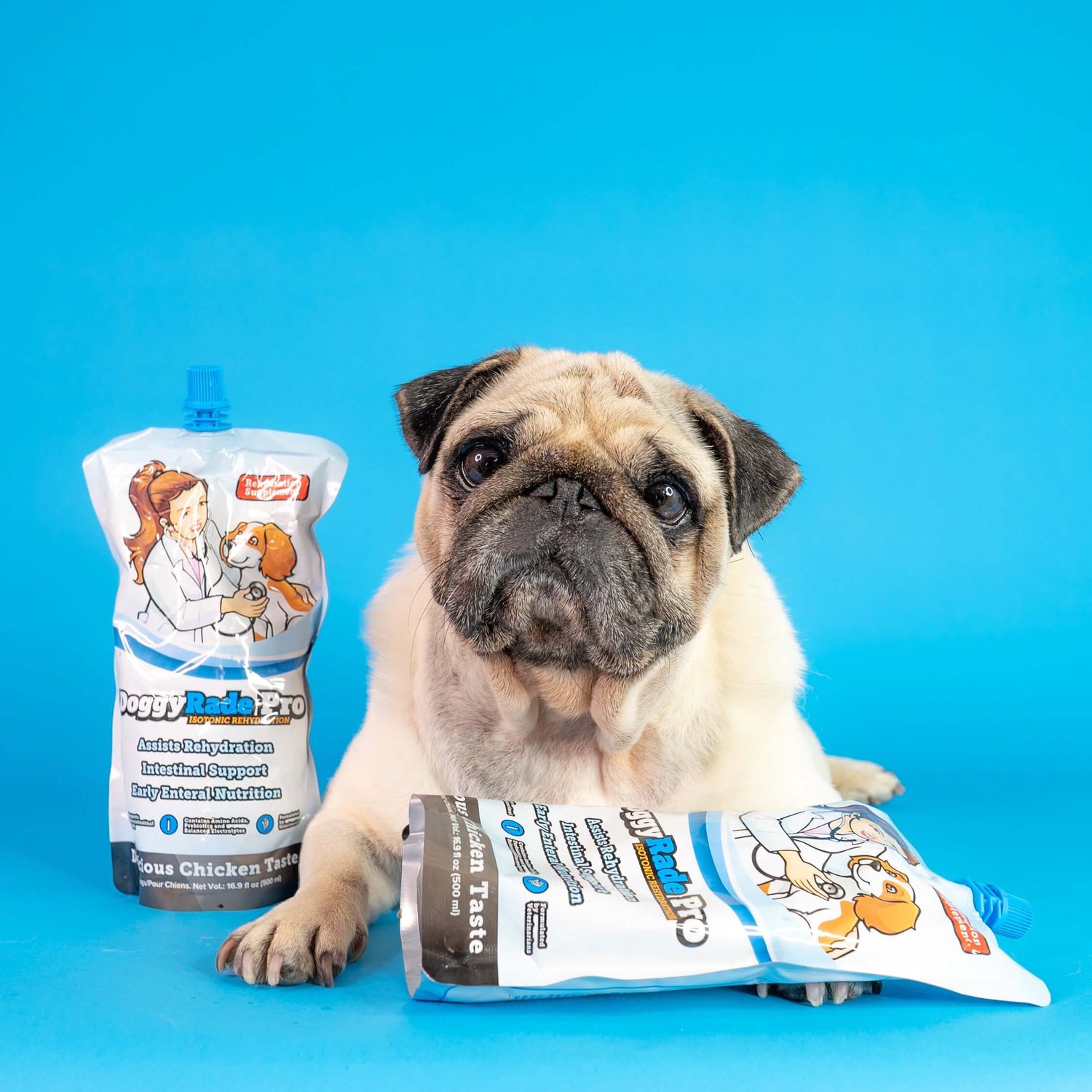
Dog Diarrhea: 11 Causes and Best Treatments
Dealing with dog diarrhea can be distressing for both you and your furry friend. Understanding the causes and having effective treatments on hand can help alleviate the situation quickly. In this article, we'll explore 11 common causes of dog diarrhea and discuss 11 best treatments available to restore your dog's health, well-being and hopefully help prevent future cases.
Kolekcja: Biegunka u psa: 11 przyczyn i najlepsze metody leczenia
11 Common Triggers of Dog Diarrhea
1. Sneaky Eaters:
Dogs are notorious for getting into things they shouldn't. Eating spoiled food, garbage, fatty food scraps or foreign objects can lead to diarrhea.
2. Sudden Diet Changes:
Abruptly switching your dog's food can disrupt their digestive system and result in loose stools.
3. Food Allergies or Intolerances:
Some dogs may develop diarrhea as a reaction to certain ingredients in their food, such as grains or proteins.
4. Viral or Bacterial Infections:
Infections like parvovirus, distemper, or bacterial infections can cause severe diarrhea in dogs.
5. Intestinal Parasites:
Worms, such as roundworms, hookworms, or giardia, can cause diarrhea and gastrointestinal upset.
6. Stress or Anxiety:
Dogs can experience stress or anxiety due to changes in their environment, separation anxiety, or other triggers, leading to diarrhea.
7. Medication Side Effects:
Certain medications, such as antibiotics or non-steroidal anti-inflammatory drugs (NSAIDs), can cause digestive disturbances in dogs.
8. Inflammatory Bowel Disease (IBD):
IBD is a chronic condition where the dog's immune system attacks the lining of the digestive tract, leading to chronic diarrhea.
9. Pancreatitis:
Inflammation of the pancreas can cause digestive issues, including diarrhea, in dogs.
10. Eating Toxic Substances:
Ingesting toxic substances, including certain plants, chemicals, or medications, can result in diarrhea.
11. Underlying Health Conditions:
Conditions like kidney disease, liver disease, or thyroid problems can manifest as diarrhea in dogs.
11 Best Treatments for Dog Diarrhea
1. Proper Hydration:
Ensure your dog stays hydrated by providing clean, fresh water at all times. You can also use a specialised drink like DoggyRade Pro, an isotonic rehydration drink formulated for veterinary patients, to aid in recovery from intestinal disorders.
2. Supporting Gut Health:
Incorporate a prebiotic isotonic drink like DoggyRade into your dog's diet. It contains natural fibre prebiotics, electrolytes, and amino acids to support good gut health, nutrient absorption and aids in digestion.
3. Dietary Adjustments:
Feed your dog a bland diet of boiled chicken and rice to soothe their digestive system. Gradually reintroduce their regular food once their stools normalise.
4. Probiotics:
Administer specialised probiotics formulated for dogs to restore the balance of beneficial bacteria in the gut and aid in digestion.
5. Anti-Diarrheal Medication:
Your veterinarian may prescribe anti-diarrheal medications, such as kaolin-pectin products or loperamide, to alleviate diarrhea symptoms.
6. Parasite Control:
Treat intestinal parasites with appropriate medications prescribed by your veterinarian to eliminate the underlying cause of diarrhea.
7. Food Allergy Management:
If food allergies are suspected, your vet may recommend an elimination diet or prescribe hypoallergenic food to identify and manage food sensitivities.
8. Medication Adjustment:
If diarrhea is a side effect of medication, your vet may adjust the dosage or switch to an alternative medication.
9. Stress Reduction:
Minimise stressors in your dog's environment and provide them with a safe and comfortable space to reduce anxiety-induced diarrhea.
10. Treatment of Underlying Conditions:
If diarrhea persists or is accompanied by other symptoms, your vet will diagnose and treat any underlying health conditions contributing to the diarrhea.
11. Professional Veterinary Guidance:
Seek professional help from your veterinarian for accurate diagnosis, personalised treatment plans, and guidance specific to your dog's needs.

Preventing Future Cases of Diarrhea
In addition to its rehydration properties, DoggyRade also plays a vital role in supporting a healthy gut, helping to reduce the chances of diarrhea occurring in the first place. Natural fibre prebiotics increase the growth and activity of beneficial microorganisms in the gut, promoting good gut health, improved digestion, and nutrient absorption. By including DoggyRade prebiotic drink in your dog's regular hydration routine, you can help maintain a healthy gastrointestinal system.

Be Prepared with a Digestive First Aid Kit
DoggyRade Pro, with its specialised formulation, serves as an invaluable addition to your dog's first aid kit. It is designed to manage and accelerate the recovery process from gastrointestinal issues such as vomiting or diarrhea in dogs. With its blend of amino acids, prebiotics, and balanced electrolytes, DoggyRade Pro aids in rehydration and supports dogs in recovering from intestinal disorders such as acute diarrhea. Often recommended by vets as a support for dogs post veterinary treatments or visits, having DoggyRade Pro on hand can provide peace of mind, knowing that you are equipped with an effective solution to help your furry friend during such episodes.
DoggyRade - 250ml
DoggyRade - 500ml
Dog diarrhea can have various causes!
Dog diarrhea can have various causes, ranging from dietary issues and infections to underlying health conditions. By understanding the causes and implementing the appropriate treatments, you can help your dog recover swiftly. However, if symptoms persist it's crucial to consult your veterinarian for accurate diagnosis and tailored treatment plans to ensure your dog's health and well-being are restored effectively. Please note that while the article provides general information about dog diarrhea and its treatments, it is not a substitute for professional veterinary advice. Always consult a qualified veterinarian for accurate diagnosis and appropriate treatment for your dog's individual case.


